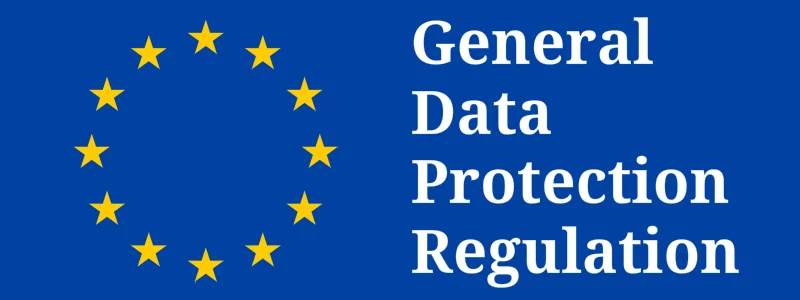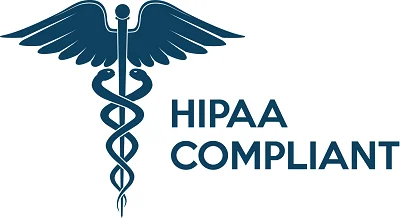Security & compliance
What information does a Self-Hosted Comet Management Console send back to us?
Comet requires online licensing and sends license usage statistics to Comet. This functionality is turned on by default and cannot be disabled at any time.
Each Self-Hosted Comet Management Console collects the name and operating system of each device the Comet Client is installed on, including what Protected Items (Boosters) are in use and the amount of storage in each vault being used. This is required by the Self-Hosted Comet Management Console to display accurate information and to be able to control a device remotely. Not all of the information collected by a Self-Hosted Comet Management Console is passed to our licensing server. We are unable to view this data remotely.
Each Self-Hosted Comet Management Console will collect the Public IP Address and Timezone of each Comet Client. However, the licensing server does not collect this information from a Self-Hosted Comet Management Console. It is stored on the Self-Hosted Comet Management Console only to provide remote debugging capabilities.
When you use Comet, we collect information about which features you use and how you use them (collectively, "Usage Data"). This functionality is turned on by default and cannot be disabled at any time.
Usage data
Our licensing server collects a smaller subset of data from each Comet Management Console for licensing, billing and product improvement purposes. From each Comet Management Console our licensing server collects the following information:
For each Comet Management Console, we collect:
- Usage Data: Comet collects Usage Data on what Server features you use for licensing and billing purposes, as well as for product improvement.
- IP Address: Comet collects the IP Address of where the Server is installed to enforce licensing requirements.
- Usernames: Comet collects the name of each user created on a Comet Management Console for billing purposes. This is the name shown in our billing portal (account.cometbackup.com/billing).
For each Comet Client, we collect:
- Usage Data: Comet collects Usage Data on what Comet Protected Items (Boosters) you use for licensing and billing purposes, as well as for product improvement.
- Username: Comet collects the name of the user a device is assigned to for billing purposes. This is the name shown in our billing portal (account.cometbackup.com/billing).
- Device Name: Comet collects the name of a device for billing purposes. This is not currently used or stored by our licensing server. NOTE: When configuring a new device, the name of the device will default to the hostname of the device which will be collected by Comet. This name can be changed when registering a new device. To know more read the device configuration documentation found here
We keep all data collected from a Comet Management Console forever, unless explicitly requested to be deleted.
GDPR compliance

What is GDPR?
The EU General Data Protection Regulation (GDPR) replaces the Data Protection Directive 95/46/EC and was designed to harmonize data privacy laws across Europe, to protect and empower all EU citizens data privacy and to reshape the way organizations across the region approach data privacy. The enforcement date of GDPR is 25 May 2018.
You can read more about the regulation here on eugdpr.org
Is Comet GDPR compliant?
Comet can be part of your GDPR compliant backup offering, however you will have to ensure that you fulfil your own GDPR obligations as well. It maybe advantageous to engage a GDPR consultant or agency to ensure your compliance.
What aspects of using Comet will help with providing a GDPR compliant backup offering?
Encryption: Comet always encrypts all user data before storing it. It remains encrypted during transfer and also at rest in the storage destination, even in a scenario where the storage destination is compromised the data remains unreadable. Technical details about our encryption can be found here.
Server and Storage Locations: Self-Hosted Comet Management Console and Storage Gateways are a self-hosted and managed product - you can choose where your server and storage destinations are located and what security measures you have in place. Comet-Hosted servers and their attached storage are hosted on Amazon AWS EC2 and the cloud storage platform of your choice. More information is available here about the cloud security measures Amazon has in place.
Access: If you are using a Self-Hosted Comet, only you can access your Comet Management Console and Storage Gateways, and grant/create additional system users. If you are using Comet-Hosted, we respect the privacy and security of your instance. In the unlikely event that Comet Backup staff would require direct access your Comet-Hosted Management Console, your consent will be sought first and this access will only be undertaken if consent is granted by you.
Removal of data: In both Self-Hosted and Comet-Hosted Comet Management Consoles, you have total control over the data including deletion options if a customer requests it from you.
Where can I find more information about the handling of Personal Data, Privacy Policy and Data Processing?
You can find this information here.
HIPAA compliance

What is HIPAA?
The United States HIPAA (Health Insurance Portability and Accountability Act) is legislation that mandates data privacy and security provisions for the safeguarding of patient data by health organizations, including drugstores, hospitals and specialized insurance companies. This law was further amended in 2009 to include the HITECH Act (The Health Information Technology for Economic and Clinical Health). The act states that Protected Health Information (PHI) must be rendered “unusable, unreadable, or indecipherable” to unauthorized persons and that encryption for data ‘at-rest’ and ‘inflight’ should be addressed.
HIPAA Compliant Cloud Storage Providers supported by Comet:
| Provider | Compliance |
|---|---|
| Documentation | |
| Documentation | |
| Documentation | |
| Documentation | |
| Documentation | |
| Documentation |
Is Comet HIPAA compliant?
Backing up:
Comet always encrypts all user data before sending or storing it, using strong AES-256-CTR with Poly1305 in AEAD mode with high-entropy random keys. The user's password is used to derive two 192-bit keys (the "L" and "R" keys) via PBKDF2-SHA512, with hard-coded parameters for repeatable output.
- The L-key is used to log in to the Management Console in place of the real password; the server stores only a bcrypt(sha512) hash of this L-key.
- The R-key never leaves the client, and is used to encrypt secret keys stored within the user's profile on the server.
During rest:
When Comet sets up a Storage Vault for the first time, it generates two high-entropy random keys (the 256-bit "A" and 128-bit "E" keys). All user data in the Storage Vault is stored encrypted with the A-key using AES-256 in CTR mode, and authenticated using Poly1305 in AEAD (encrypt-then-MAC) mode. The only party with the decryption key is your company/the backup user. This ensures total privacy of the PHI data.
What is a Business Associate Addendum (BAA)
Under the Health Insurance Portability and Accountability Act (HIPAA), a "business associate" is a person or entity who performs functions or activities on behalf of, or provides certain services to, a covered entity and isn’t employed by the covered entity. A "business associate" also includes a subcontractor that creates, receives, maintains, or transmits protected health information on behalf of another business associate. Under the HIPAA regulations, using a Cloud Service Provider like Amazon/Azure/Wasabi etc would classify you as being in a business associate arrangement and require an agreement.
The HIPAA rules generally require that covered entities and business associates enter into contracts to ensure that the business associates will appropriately safeguard protected health information. The business associate contract also serves to clarify and limit, as appropriate, the permissible uses and disclosures of protected health information by the business associate, based on the relationship between the parties and the activities or services being performed by the business associate.
Do I need to sign a BAA with Comet?
No, you do not need a BAA with us. If you decide to use a third party storage provider, it is advisable that you sign a BAA with the storage company.
Self-Hosted Comet Management Console and HIPAA
As you are running/hosting Comet yourself and backing up to your own selected storage/cloud storage provider you do not need a BAA with us. Data that is backed up using Comet is always encrypted during backup, transit and at rest. Only you and parties you nominate, have access to your Self-Hosted Comet Management Console.
Comet-Hosted Management Console and HIPAA
We do not recommend using Comet-Hosted Management Console as a HIPAA backup solution.





